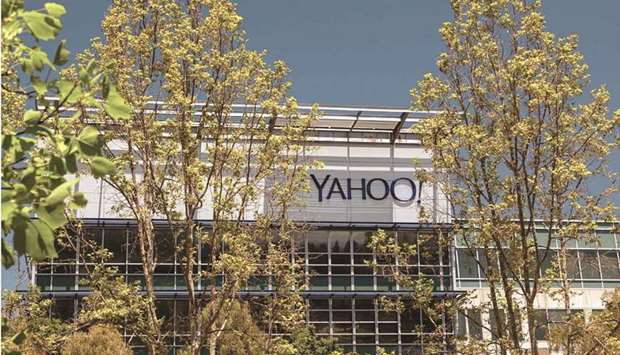Apollo Global Management Inc’s $5bn deal for Verizon Communications Inc’s media unit will create a new entity dubbed Yahoo, and while the name is losing its exclamation point, the new owners are enthusiastic about the business’s opportunities.
Along with Yahoo, Apollo is getting AOL, TechCrunch, Ryot, Built By Girls and Flurry. Guru Gowrappan, who headed the division for Verizon, will be chief executive officer of Yahoo. Verizon will keep a 10% stake in the venture.
Apollo partner Reed Rayman said he hopes to take these primarily advertising-driven media brands and augment them with new products like subscription services and sports betting.
Those ambitions aren’t altogether different than the previous management’s, but Verizon, which was almost solely focused on expanding its wireless business into 5G, couldn’t find enough patience or resources to make its media foray a success.
Yahoo has about 900,000 users of its e-mail, sports and finance sites. And while that’s a wealth of consumer connections, Verizon discovered that the ties aren’t very durable.
If Apollo sees the big online audience as a short-term win, it “could be in for a rude awakening,” said Joanna O’Connell, an analyst with Forrester. “Consumer relationships don’t just persist in perpetuity in a vacuum. They need to be nurtured and grown.” Rayman called Yahoo Finance the world’s premier financial site but declined to provide specifics of growth plans for the outlet, which could range from stock trading to investment services. “We’re looking at a wide range of business and product initiatives that can really leverage its scale,” he said. Apollo also sees opportunity beyond the marquee properties of Yahoo Finance and Yahoo Sports.
“Yahoo Mail is still the second-most-used mail worldwide,” Rayman said. “There is a lot in here that we’re excited about. This wasn’t a thesis of buying a lot of things just to get one or two things.”
Apollo got its start in the 1990s as a so-called vulture investor led by co-founder Leon Black.
The targets were waning businesses and distressed assets. Today its roster of investments makes it a global conglomeration involved with a range of industries, including insurance, tech, manufacturing and TV stations.
Verizon, which wrote down $4.5bn of the media unit’s value, will get to walk away from a distracting, unprofitable business with $5 billion that it can use to help pay off debts.
Apollo has a few options, said Roger Entner, an analyst with Recon Analytics.
“Private equity makes money in two ways: put companies together or break them apart,” Entner said. “These guys will probably apply some tender loving care to the head count and the balance sheet and sell the best parts.”
Rayman said there’s no immediate M&A plan for Yahoo.
“It’s an iconic asset and we need to make sure we do it right,” he said. Apollo has been involved in media carve-outs before, such as Cox Communications Inc selling the firm its TV stations in 2019 but keeping a minority stake, similar to Verizon. It also attracted Alphabet Inc. last year to buy a stake in home-security firm ADT Inc, an Apollo portfolio company it took public in 2018.
And Apollo may have a playbook for squeezing juice out of withered web assets. The firm acquired two former online-photo giants, Shutterfly and Snapfish, and has been planning to combine them and take the venture public.

Signage on a building at the Oath Yahoo! headquarters in Sunnyvale, California. Apollo Global Management’s $5bn deal for Verizon Communications’ media unit will create a new entity dubbed Yahoo, and while the name is losing its exclamation point, the new owners are enthusiastic about the business opportunities.
